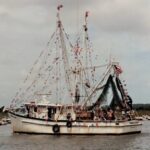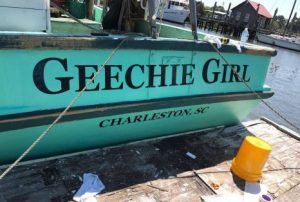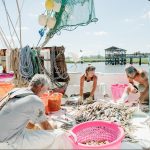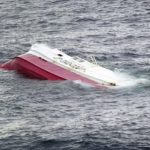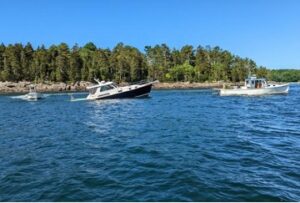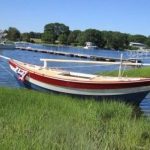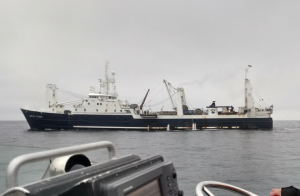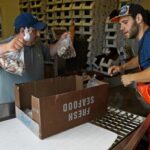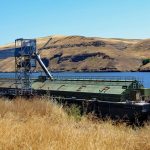Tag Archives: Atlantic herring
Industry withholding data on one of Canada’s largest fisheries, advocates say
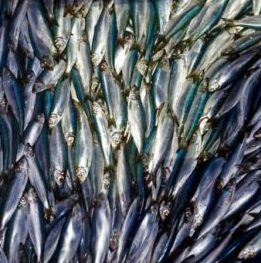 Advocates and scientists are raising concerns with the availability of data on one of Canada’s largest fisheries, as the Department of Fisheries and Oceans DFO is waiting on industry to provide data on the herring fishery in southwest Nova Scotia and the Bay of Fundy. For decades, herring stock has been declining and has been in the critical zone since 2018. In July, DFO reduced the total allowable catch to 16,000 tonnes per season, from 21,000, fixing the quota at the reduced level until 2027. Since then, advocates say the Herring Science Council — an industry body that, through an agreement with DFO, gathers the data that’s the only source of scientific information on the fishery — has not provided to the department the information it has collected. more, >>CLICK TO READ<< 08:12
Advocates and scientists are raising concerns with the availability of data on one of Canada’s largest fisheries, as the Department of Fisheries and Oceans DFO is waiting on industry to provide data on the herring fishery in southwest Nova Scotia and the Bay of Fundy. For decades, herring stock has been declining and has been in the critical zone since 2018. In July, DFO reduced the total allowable catch to 16,000 tonnes per season, from 21,000, fixing the quota at the reduced level until 2027. Since then, advocates say the Herring Science Council — an industry body that, through an agreement with DFO, gathers the data that’s the only source of scientific information on the fishery — has not provided to the department the information it has collected. more, >>CLICK TO READ<< 08:12
DFO defends cut to herring quota that company claims forced N.B. layoffs
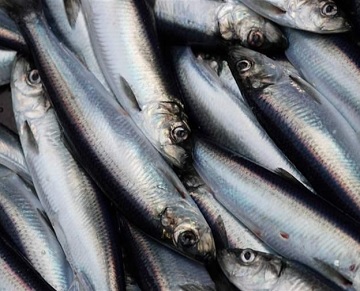 Fisheries and Oceans Canada is defending its July decision to reduce the herring quota in the Bay of Fundy, after a major New Brunswick employer blamed the decision for major layoffs. “We recognize the economic impacts this decision will have on the families and communities that rely on income from fishing and processing herring,” said Lauren Sankey, DFO spokesperson, in an emailed statement late Friday afternoon. Connors Bros., a herring processing company in Blacks Harbour, near St. George, announced this week it’s laying off 20 per cent of its workforce, which is estimated to be about 100 people. more, >>CLICK TO READ<< 07:22
Fisheries and Oceans Canada is defending its July decision to reduce the herring quota in the Bay of Fundy, after a major New Brunswick employer blamed the decision for major layoffs. “We recognize the economic impacts this decision will have on the families and communities that rely on income from fishing and processing herring,” said Lauren Sankey, DFO spokesperson, in an emailed statement late Friday afternoon. Connors Bros., a herring processing company in Blacks Harbour, near St. George, announced this week it’s laying off 20 per cent of its workforce, which is estimated to be about 100 people. more, >>CLICK TO READ<< 07:22
Herring quota in southwestern Nova Scotia, Bay of Fundy, reduced again
 The Department of Fisheries and Oceans has again lowered the Atlantic herring quota in southwestern Nova Scotia and the Bay of Fundy, this time for 2024 to 2027. DFO has announced the total allowable catch for the fishery will be 16,000 tonnes per season over those four seasons. The 2023 allocation was 21,000 tonnes. “Atlantic herring, like many fisheries, faces challenges as a result of climate change, which has led to herring that are smaller in size and that have more difficulty surviving and reproducing in their ecosystem,” says a news release from the department. “We recognize the economic impacts this decision will have on the families and communities that rely on income from fishing and processing herring. But such a decision is necessary to ensure recovery and protect the resource for future generations,” said the DFO release. more, >>CLICK TO READ<< 16:40
The Department of Fisheries and Oceans has again lowered the Atlantic herring quota in southwestern Nova Scotia and the Bay of Fundy, this time for 2024 to 2027. DFO has announced the total allowable catch for the fishery will be 16,000 tonnes per season over those four seasons. The 2023 allocation was 21,000 tonnes. “Atlantic herring, like many fisheries, faces challenges as a result of climate change, which has led to herring that are smaller in size and that have more difficulty surviving and reproducing in their ecosystem,” says a news release from the department. “We recognize the economic impacts this decision will have on the families and communities that rely on income from fishing and processing herring. But such a decision is necessary to ensure recovery and protect the resource for future generations,” said the DFO release. more, >>CLICK TO READ<< 16:40
Atlantic herring suffering in warming Gulf of St. Lawrence
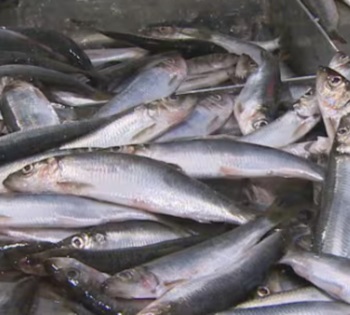 Decades of research show a slow decline in herring stocks in the Gulf of St. Lawrence, and scientists are linking that decline to waters that are warming with climate change. Recent research from NASA found that about 90 per cent of global warming is occurring in the ocean. In the Gulf of St. Lawrence, Joël Chassé, an oceanographer with Fisheries and Oceans Canada, said 11 of 12 months last year had warmer than normal surface temperatures, and he expects a similar pattern this year. “Fishermen in northern New Brunswick, the Baie des Chaleur region, were having difficulty finding the fish,” said Jacob Burbank, a researcher in fish ecology with Fisheries and Oceans Canada. “They weren’t seeing Atlantic herring where they normally would see Atlantic herring. They kept waiting for them to come in for their spawning and they just didn’t see them.” more, >>CLICK TO READ<< 11:40
Decades of research show a slow decline in herring stocks in the Gulf of St. Lawrence, and scientists are linking that decline to waters that are warming with climate change. Recent research from NASA found that about 90 per cent of global warming is occurring in the ocean. In the Gulf of St. Lawrence, Joël Chassé, an oceanographer with Fisheries and Oceans Canada, said 11 of 12 months last year had warmer than normal surface temperatures, and he expects a similar pattern this year. “Fishermen in northern New Brunswick, the Baie des Chaleur region, were having difficulty finding the fish,” said Jacob Burbank, a researcher in fish ecology with Fisheries and Oceans Canada. “They weren’t seeing Atlantic herring where they normally would see Atlantic herring. They kept waiting for them to come in for their spawning and they just didn’t see them.” more, >>CLICK TO READ<< 11:40
Fishermen Join Fight for Herring Trawler Rules
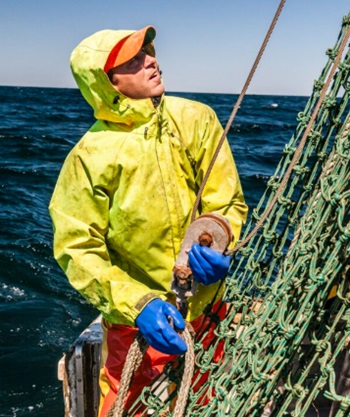 The marine ecosystem around Cape Cod is built on the backs of Atlantic herring. These baitfish school in massive numbers, providing food for marine mammals, seabirds, and large fish like cod. Their eggs, which they lay in the fall and are dense enough in spots to carpet the ocean floor, are food for crabs and other bottom-dwelling animals. They are also a $4.5-million fishery, used as bait for lobster traps, turned into canned sardines, and sold, frozen or salted, overseas. But with the Atlantic herring population in a steep decline, and the most recent attempt at a rule to protect the fish thwarted, Cape Cod fishermen are advocating for new ways to protect the species. more, >>CLICK TO READ<< 09:21
The marine ecosystem around Cape Cod is built on the backs of Atlantic herring. These baitfish school in massive numbers, providing food for marine mammals, seabirds, and large fish like cod. Their eggs, which they lay in the fall and are dense enough in spots to carpet the ocean floor, are food for crabs and other bottom-dwelling animals. They are also a $4.5-million fishery, used as bait for lobster traps, turned into canned sardines, and sold, frozen or salted, overseas. But with the Atlantic herring population in a steep decline, and the most recent attempt at a rule to protect the fish thwarted, Cape Cod fishermen are advocating for new ways to protect the species. more, >>CLICK TO READ<< 09:21
Warming waters in Casco Bay are driving herring farther from shore
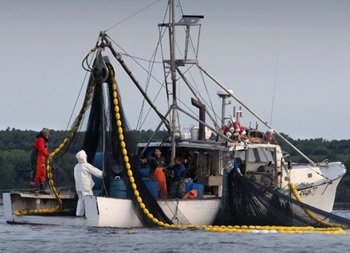 The Gulf of Maine is warming three times faster than the average global ocean, driving some cold-water species like Atlantic herring, the preferred lobster bait — farther away from its shoreline spawning habitat earlier than usual and attracting species from warmer southern waters, including blue crab and black sea bass, a new survey found. The warmth is stressing some of Maine’s keystone fisheries, according to the Gulf of Maine Research Institute’s report on the Casco Bay ecosystem released recently. The report is the first time the institute took a longer, 10-year look at the pace of environmental changes and their effects on ecosystems close to shore. It found that warming waters related to climate change, along with human activities, ocean acidification and harmful algal blooms, are causing different behaviors in species that could hinder their ability to reproduce and thrive. more, >>CLICK TO READ<< 09:52
The Gulf of Maine is warming three times faster than the average global ocean, driving some cold-water species like Atlantic herring, the preferred lobster bait — farther away from its shoreline spawning habitat earlier than usual and attracting species from warmer southern waters, including blue crab and black sea bass, a new survey found. The warmth is stressing some of Maine’s keystone fisheries, according to the Gulf of Maine Research Institute’s report on the Casco Bay ecosystem released recently. The report is the first time the institute took a longer, 10-year look at the pace of environmental changes and their effects on ecosystems close to shore. It found that warming waters related to climate change, along with human activities, ocean acidification and harmful algal blooms, are causing different behaviors in species that could hinder their ability to reproduce and thrive. more, >>CLICK TO READ<< 09:52
Anglers seek trawler buffer zone as Atlantic herring stock declines
 Recreational fishermen in New England say commercial trawlers are threatening the survival of smaller businesses relying on a healthy stock of Atlantic herring. Rich Hittinger, first vice president of the Rhode Island Saltwater Anglers Association, said years of overfishing depleted the population and continue to have negative effects on the ocean ecosystem. “The predator fish, like the striped bass, they’re scrounging for anything that they can eat,” Hittinger observed. “And we often see fish that are long and thin because they’re really not getting sufficient nutrition.” Hittinger noted anglers want the New England Fishery Management Council to reestablish a 12-mile offshore buffer zone to force large commercial trawlers out to sea and reduce conflicts with businesses closer to shore. The council is accepting public comments through April. more, >>click to read<< 06:27
Recreational fishermen in New England say commercial trawlers are threatening the survival of smaller businesses relying on a healthy stock of Atlantic herring. Rich Hittinger, first vice president of the Rhode Island Saltwater Anglers Association, said years of overfishing depleted the population and continue to have negative effects on the ocean ecosystem. “The predator fish, like the striped bass, they’re scrounging for anything that they can eat,” Hittinger observed. “And we often see fish that are long and thin because they’re really not getting sufficient nutrition.” Hittinger noted anglers want the New England Fishery Management Council to reestablish a 12-mile offshore buffer zone to force large commercial trawlers out to sea and reduce conflicts with businesses closer to shore. The council is accepting public comments through April. more, >>click to read<< 06:27
Five Maine fishermen plead guilty in herring scheme
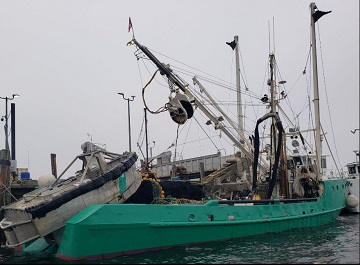 The trial of five fishermen accused of a multi-year scheme to sell unreported Atlantic herring and falsify fishing records ended Monday when the defendants all pleaded guilty to lesser offenses. No sentencing date has been scheduled. The plea agreements call for a maximum sentence of a year in prison, a fine of up to $100,000, and up to one year of supervised release. The defendants, however, may end up with no jail time. Fifty-nine counts against the five defendants were dismissed in exchange to the pleas on lesser charges. The trial began last week in U.S. District Court in Portland and was expected to last nine days. The five defendants who pleaded were Glenn Robbins, 76, of Eliot; Ethan Chase, 46, of Portsmouth, N.H.; Neil Herrick, 48, of Rockland; Stephen Little, 58, of Warren; Jason Parent, 51, of Owls Head; and Western Sea, Inc. more, >>click to reads<< 16:20
The trial of five fishermen accused of a multi-year scheme to sell unreported Atlantic herring and falsify fishing records ended Monday when the defendants all pleaded guilty to lesser offenses. No sentencing date has been scheduled. The plea agreements call for a maximum sentence of a year in prison, a fine of up to $100,000, and up to one year of supervised release. The defendants, however, may end up with no jail time. Fifty-nine counts against the five defendants were dismissed in exchange to the pleas on lesser charges. The trial began last week in U.S. District Court in Portland and was expected to last nine days. The five defendants who pleaded were Glenn Robbins, 76, of Eliot; Ethan Chase, 46, of Portsmouth, N.H.; Neil Herrick, 48, of Rockland; Stephen Little, 58, of Warren; Jason Parent, 51, of Owls Head; and Western Sea, Inc. more, >>click to reads<< 16:20
Herring disaster funds should be used to phase out harmful trawling
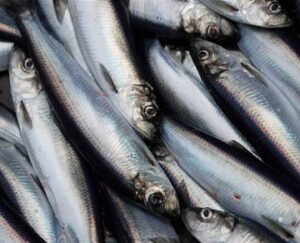 The Atlantic States Marine Fisheries Commission is releasing $11 million in disaster relief funds to Atlantic herring harvesters, of which $7 million will go to Maine. These funds should be used to phase out herring trawling by buying back fishing permits in an effort to increase herring stocks and to protect other marine life. U.S. Atlantic herring landings in the 2000s averaged 206 million pounds annually but have since decreased to below 22 million pounds in 2020 and 2021. The New England Fishery Management Council led a process to craft a 10-year rebuilding plan. This dramatic downturn in herring is likely because variables with climate change are reducing ocean productivity resulting in seven consecutive years of low numbers of young fish surviving to maturity. >click to read< 12:58
The Atlantic States Marine Fisheries Commission is releasing $11 million in disaster relief funds to Atlantic herring harvesters, of which $7 million will go to Maine. These funds should be used to phase out herring trawling by buying back fishing permits in an effort to increase herring stocks and to protect other marine life. U.S. Atlantic herring landings in the 2000s averaged 206 million pounds annually but have since decreased to below 22 million pounds in 2020 and 2021. The New England Fishery Management Council led a process to craft a 10-year rebuilding plan. This dramatic downturn in herring is likely because variables with climate change are reducing ocean productivity resulting in seven consecutive years of low numbers of young fish surviving to maturity. >click to read< 12:58

Herring fishermen get money after decline of fish, quota cuts
Fishermen in Maine’s historic herring fishing business will receive money from the federal government to help cope with a decline in the fish’s population that has caused the industry to struggle. The government has appropriated $7 million for the fishermen, the Maine Department of Marine Resources said Wednesday. Atlantic herring were found to be overfished via a 2020 scientific assessment, and fishing quotas were slashed after that. The nation’s catch of Atlantic herring has plummeted in the face of quota cuts and concern over the health of the stock. The loss of herring has led to a bait crunch for lobster fishermen, who have had to seek other sources of bait for traps. >click to read< 09:26
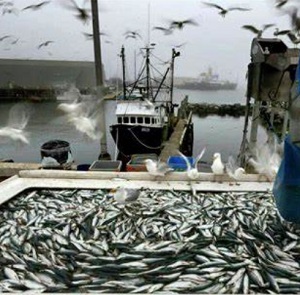
Fishermen take case against paying for monitors to SCOTUS
“Making these vessels pay to have the observer coverage on them just decreases hardworking fishermen’s wages and makes it less attractive for vessels to continue,” said Wayne Reichle, president of Lund’s Fisheries of New Jersey and an owner of two of the boats that are plaintiffs in the case. “In some cases, it prevents them from fishing.” The fishermen have made the case that Congress never gave federal regulators the authority to require the expense of paying for the monitors. The price of at-sea monitoring, and who must pay for it, is a longstanding source of tension between commercial fishermen and regulators. >click to read< 21:01

Management Plan Released for Atlantic Herring in Southwest Nova Scotia and the Bay of Fundy
Atlantic herring is a vital species in Atlantic Canada. As one of the largest commercial fisheries in Atlantic Canada, the Southwest Nova Scotia / Bay of Fundy herring stock directly or indirectly employs more than 1,000 people in rural Nova Scotia and New Brunswick and contributes over $140 million to the local economy. Atlantic herring is also an important source of bait for other commercial fisheries, such as lobster and snow crab. Despite a number of measures taken in recent years to encourage rebuilding, the Southwest Nova Scotia / Bay of Fundy Atlantic herring stock remains in the critical zone. Stronger sustainable management actions are needed to protect this important species and return it to abundance. >click to read< 13:29

Atlantic Herring: New England to get $11M in disaster relief funding
Disaster-level instability in the Atlantic herring industry has prompted the federal government to give $11 million to commercial fishermen and shore-side infrastructure in four states. Secretary of Commerce Gina Raimondo said Thursday that the herring industry in Maine, Massachusetts, New Hampshire and Rhode Island will get the assistance. More than $7 million is slated for Maine. Raimondo said the assistance “will help affected fisheries and communities recover from disasters and make them more resilient to future challenges.” >click to read< 15:49

Midwater trawler critics intend to appeal court decision
Fishermen in the Gulf of Maine are seeking to appeal a federal judge’s reversal of an exclusion zone that keeps herring trawlers 12 miles offshore. The March 4 ruling by US District Court Judge Leo Sorokin in Boston could reopen some Northeast waters to midwater herring trawlers, reversing the 2019 rule change that excluded them from a wide swath. from the Atlantic coast from Long Island to the Canadian border. In his opinion, Judge Sorokin wrote that the concept of “localized depletion” put forward by opponents of midwater trawlers has not been adequately defined by NMFS, leading him to rule that the exclusion zone decision violated Magnuson-Steven National Standard 4. Fishing Management and Conservation Law. >click to read< 14:28

Fishermen sue to end industry funded monitoring program
A group of fishing companies in New England is bringing its bid to try to end industry-funded monitoring programs to federal appeals court. The companies are part of the industry that harvests Atlantic herring, which are heavily fished off the East Coast. The federal government requires herring fishing boats to participate in, and pay for, at-sea monitoring programs. >click to read< 13:30

Herring Fishermen lose challenge to rule requiring at-sea monitors
A federal judge in Washington D.C. on Tuesday denied the bid of New Jersey-based herring fishermen who sued the National Marine Fisheries Service (NMFS) last year to block a new regulation that will require them to pay for third-party “at-sea monitors” who will survey by-catch. U.S. District Judge Emmet Sullivan ruled that the agency had not acted in violation of the MSA,,, About half-a-dozen small fishing vessel operators, including the Loper Bright Enterprise, brought the lawsuit last year. >click to read< 11:57
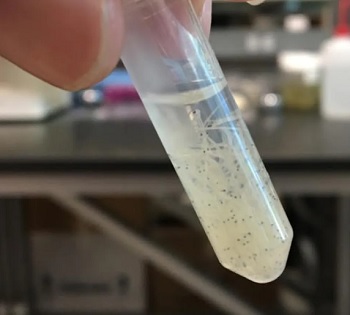
Scientists, First Nations team up in fresh attempt to revive struggling B.C. herring stocks
For decades, the fish were viewed as a virtually inexhaustible resource. They were canned, frozen, used as fertilizer, and even rendered into slippery goo to grease logs being skidded out of the forest. But the once coastal-wide bonanza is fizzling out. This year, most of the waters off B.C. were closed to commercial herring boats, with the only quota being allowed in the Strait of Georgia, along Canada’s southwest coast. The first collapse of the stocks happened in the 1960s, due to overfishing. They were allowed to recover but have had ups and downs in recent decades. The herring fishery in Eastern Canada has also been facing tough times. >click to read< 13:48
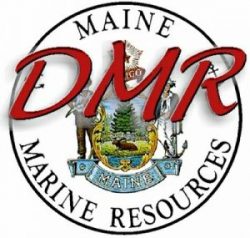
Three Charged with Violating Laws Intended to Protect Rebuilding Atlantic Herring Stock
The investigation, which took place during August and September, found that the fishing vessel Western Sea, operated by Glenn Robbins, exceeded the 160,000-pound weekly limit on two occasions. “At a time when regulators have drastically reduced harvest limits to address declining Atlantic herring recruitment, this is an especially egregious violation.”, said Marine Patrol Colonel Jay Carroll.,,, Ethan Chase, 42 of Portsmouth, New Hampshire, who also operated Robbins’ vessel, was cited,,, Dealer Dustin Reed, owner of wholesale seafood dealer New Moon Fisheries, has also been charged,,, >click to read< 14:58
Two Mainers, N.H. man cited in landing of too many herring – >click to read<
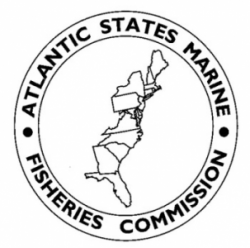
ASMFC Atlantic Herring Days Out Conference Call, Scheduled for July 10, 2019 at 1:00 PM
The Atlantic States Marine Fisheries Commission’s Atlantic Herring Management Board members from Maine, New Hampshire, and Massachusetts set effort control measures for the Area 1A (inshore Gulf of Maine) fishery via Days Out meetings/calls. Atlantic Herring Board members from Maine, New Hampshire, and Massachusetts are scheduled to convene via conference call to consider changing the start date of the Area 1A fishery on: Wednesday, July 10th at 1:00 PM >click here for more info, and links<13:42
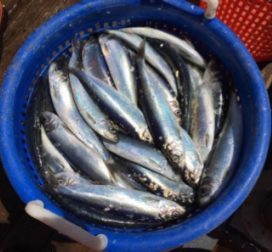
This summer crisis could take the steam
This year federal authorities are imposing a steep reduction, and a few regions of the East Coast are restricted to fishing, months prior to the lobster season gets rolling. East Coast herring fishermen brought over 200 million pounds of these fish to docks lately as 2014, but the catch of this year will be limited to less than a fifth of that total. The cut scrambling for fresh lure sources, is leaving with herring for generations in Maine lobstermen, who have baited traps and concerned about their capacity to find lobster. >click to read< 12:40

Maine’s lobster industry braces for ‘catastrophic’ cuts to bait fish catch
For the second year in a row, federal regulators have dramatically reduced the amount of Atlantic herring fishermen can haul after scientists counted far fewer juvenile Atlantic herring in the waters from Canada to New Jersey. While determining that Atlantic herring, the chief bait used by lobstermen, is not overfished, the National Oceanic and Atmospheric Administration said “recruitment” — the number of juvenile herring — is so low that on Friday they finalized a rule reducing by more than half the amount of Atlantic herring that fishermen may catch in 2019, from 50,000 metric tons to 21,000 metric tons. >click to read<12:14

New protections for herring but lobster bait crunch imminent
Fishing managers are considering extending new protections to Atlantic herring, but catch quotas for the important bait fish are still likely to plummet before the end of the year, which is bad news for the American lobster industry.,, An arm of the Atlantic States Marine Fisheries Commission voted last month to initiate changes to try to better protect spawning herring off of New England.,, Lobstermen in Maine, the biggest lobster-fishing state, are on edge waiting for the news, said Kristan Porter, president of the Maine Lobstermen’s Association. >click to read<13:43
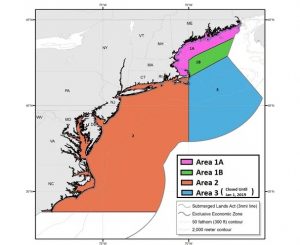
NOAA Announces Atlantic Herring Management Area 1B Sub-ACL Harvested
At 00:01 hours on October 24, 2018, the 2,000-lb herring possession limit will become effective and will be in effect until the 2019 fishing year begins on January 1. For the seasonal period from January 1, 2019, through April 30, 2019, there is no Area 1B allocation available, and no vessel may fish for herring in Area 1B under current regulations. >click to read<17:57

Lobsterman fear bait shortage with herring quota cut
At the height of the season, Brooklin lobsterman David Tarr spends $600 to $800 a day to bait his traps with herring, pogies or redfish. While some Maine lobstermen swear by herring, Tarr is willing to play the field based on price and availability. Unlike most of his peers, Tarr also has the luxury of a personal bait cooler, which allows him to buy bait when the price is right, salt it himself and store up to 200 barrels of it away — $40,000 of bait, enough for a half-season of fishing — for use during tough times. On Wednesday, one day after the New England Fisheries Management Council voted to recommend slashing the yearly herring quota by 80 percent, Tarr figures tough times are coming. “At a certain point, it is just not worth it,” Tarr said. “I won’t go fishing just to pay for my bait.”>click to read<14:03

Atlantic herring quotas may be cut again
Later this month, fisheries regulators will decide whether to adopt a new set of regulations, known as Amendment 8, that could include restricting fishing areas for the herring and could, for the first time, account for the fish’s place in the larger ecosystem. The New England Fishery Management Council’s Atlantic herring committee will meet next week to vote on a recommendation to the full council, which meets the following week. Consideration of the new management system, and the restrictions it would bring, follows the announcement in August that next year’s quota for Atlantic herring had been cut by 55 percent from its original level. >click to read<16:06
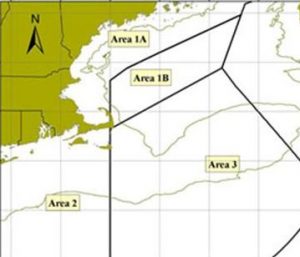
NOAA/NMFS – Reducing the Sub-Annual Catch Limits for Atlantic Herring Management Areas 1A, 1B, 2, and 3
These reductions go into effect today (August 22, 2018), and are based on the most recent stock assessment, which shows that the herring stock is in decline due to historic lows in recruitment over the past five years. To prevent overfishing in 2018, the new Management Area sub-ACLs are as follows: >click to read<16:33
NEFMC Seeks Input From Fishermen and Research Partners on RSA Programs; Take the Online Survey!
The New England Fishery Management Council is asking fishermen and their cooperative research partners who participate in the Atlantic Sea Scallop, Atlantic Herring, and/or Monkfish Research Set-Aside (RSA) Programs to take an online survey and provide feedback on the strengths and weaknesses of these programs and pass along any suggestions for improvement. Other stakeholders who have an interest or role in RSA programs also are encouraged to take the survey.,,, The survey, which contains roughly 40 questions, will be available online until mid-September 2018. >click to read<17:02
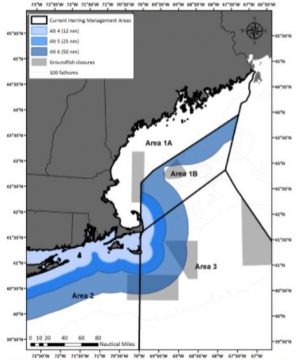
Atlantic Herring: Council Votes to Send Draft Amendment 8 Out to Public Hearing With No Preferred Alternatives
The New England Fishery Management Council today voted to send Draft Amendment 8 to the Atlantic Herring Fishery Management Plan out to public hearing without selecting any “preferred” alternatives. Given the wide range of opinions expressed by many stakeholders about this action, the Council is expecting a large degree of public engagement during the hearings, which will be held in early 2018. The Council will make final decisions later in the year after considering all public comments. The amendment is divided into two major components. ABC Control Rule, and Potential Localized Depletion and User Conflicts click here to read the press release 19:19
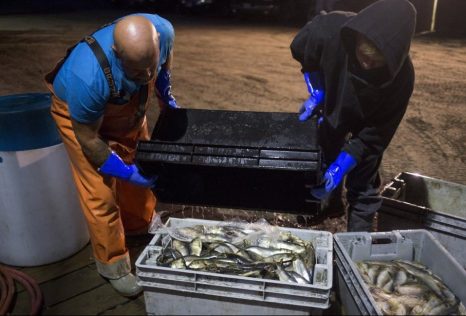
Lobstermen test new bait as hedge against herring price spikes
Two lobstering co-ops in Tenants Harbor and Port Clyde are working with The Nature Conservancy to see if they can freeze the alewives that bait their traps so successfully each spring to catch lobster at other times of the year. If it works, alewives could be the affordable bait they need when their usual favorite, Atlantic herring, is in short supply, such as it is again this summer. “It’s the second year in a row where we’ve had bait problems,” said Josh Miller, a 40-year-old lobsterman who belongs to the Tenants Harbor Lobstermen’s Co-op. “Most wharves are on (herring) rations. The prices have gone up 10 percent already. We started the season with prices that never dropped from last year, when we had a bait shortage. Bait is a huge issue.” click here to read the story 07:49



































